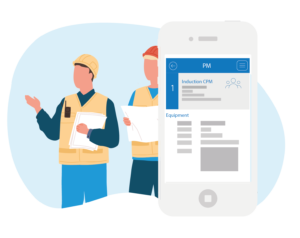Why New Accounting Standards Will Raise Real Estate’s Corporate Profile
New accounting standards on leases represent a burden for real estate, but functions that leverage their property management technology effectively have an opportunity to become trusted strategic advisers to the business
Property will account for a sizeable chunk of the $2.8trn worth of assets that will move on to the balance sheets of publicly-listed companies once new rules on accounting for lease obligations come into force from 2019. So while some real estate professionals may be cursing the International Accounting Standards Board and the Financial Accounting Standards Board, whose IFRS 16 and Topic 842 standards will add to their workloads, the reforms should also be seen as a real opportunity for the property function.
Given the sums at stake – and the way in which IFRS 16 and Topic 842 have the potential to alter the perceptions of stakeholders such as investors about businesses with large numbers of leases – the implementation and ongoing management of the standards is going to be a high-profile activity for many companies. Real estate professionals therefore have a choice: they can seize the initiative and raise their profile as strategic partners to the C-suite, or they can leave finance to take the lead.
From the perspective of both real estate itself and the business, the former option represents the preferable option. While finance will clearly have a very significant role to play in managing the impact of these reforms, real estate has the technical knowledge and experience of the business’s existing property leases, and its approach to new leases, to make a very valuable contribution.
Business leaders recognise this. Research published recently by PwC reports: “Active management of real estate assets is becoming a strategic imperative for users and the newly established lease accounting standard is an incentive to reconsider real estate strategy.”
However, if real estate is to play an active role in recasting its strategic role, it cannot be a passive participant in the process of adjusting to IFRS 16 and Topic 842. And that may require a change of mindset – in some cases, real estate already appears to have accepted a secondary position in this shift, simply responding to the requests coming from finance, rather than helping to lead the response.
That’s unfortunate, for the property management technology tools employed by many businesses can provide real estate with the data required to inform both the best way to account for existing leases under the new standards and the right leasing strategy for the business in the future. And where your property management technology does not currently offer this level of functionality, investment will be required in order to support compliance in future.
Armed with this data – and its technical understanding of the nuances of leasing – the real estate function is ideally placed to add significant strategic value when working alongside finance to manage the new standards. That’s in the interests of the wider company, of course, but will also see real estate move front and central amongst those functions consider business critical by senior management.
Real estate functions that don’t make this leap, meanwhile, will still have a role to play, but as a support service rather than a strategic partner. That would be a missed opportunity – while businesses will continue to demand technical expertise from real estate, they will also be increasingly open to the function playing this much more strategic role.
Takeaways:
- New accounting standards that come into force in 2019 will require companies to record the value of real estate leases on their balance sheets
- The scale of the potential impact of leases on the balance sheet will focus attention on the real estate function
- The standards therefore represent an opportunity for real estate to prove its value as a strategic business partner
For more information on our lease accounting solution, please visit the IFRS 16 page.
Affordable Housing Asset Manager Insights: Maximize Portfolio Performance by Supporting Housing Operators
From rising operational costs to increased demand for flexibility and technology, asset managers are navigating unique challenges to support property management teams while ensuring portfolio health and resilience. Recent MRI research delves into the…

